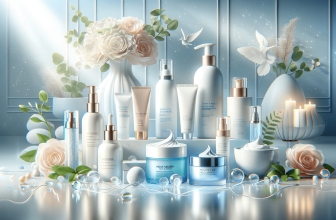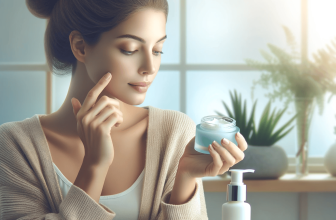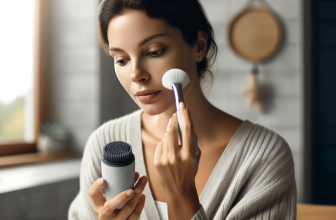Eating fruits is an essential part of your diet. The richness in antioxidants and vitamin C in fruits makes them a vital part of a healthy skin diet. The right balance of vitamins and minerals will improve the look and feel of your skin. In addition, fruits contain a lot of fiber and are low in calories. Whether you’re looking to improve your complexion or fight the effects of free radicals, these fruits have something for everyone.
Antioxidants protect skin from environmental damage
Skin is a protective barrier against environmental pollutants, but over time, the protection can wear thin. As pollutants pass through skin cells and diffuse into the body, free radicals are formed and increase, reducing the natural antioxidant levels. Although antioxidants protect the body from free radicals, normal metabolic processes produce free radicals that cause skin damage. In addition, ultraviolet radiation can cause an imbalance in antioxidants and free radicals, causing skin to become dry, brittle, and wrinkled.
Skin antioxidants fight against oxidation, a process that damages cells and leads to aging. The effects of oxidative stress are believed to compound the effects of aging by speeding the formation of free radicals, which are responsible for wrinkles and age spots. They may also weaken the immune system, increasing the risk of skin cancer. Skin care should include topical antioxidants. It is important to use a sunscreen with an SPF of 25 or higher.
Various antioxidants may be used topically on the skin to counteract the damaging effects of UV rays. These compounds are able to absorb UV rays and act as antioxidants. This strategy may also help prevent UV-induced skin damage. Therefore, enhancing the antioxidant capacity of skin cells is a promising strategy for UV-protection. However, a number of other factors may contribute to the cellular level of antioxidants, including aging.
Anti-inflammatory properties
Anti-inflammatory properties of fruits for skin include resveratrol and flavonoids. The latter are powerful antioxidants that inhibit the production of inflammatory molecules in the body. These compounds also promote beneficial bacteria in the digestive tract. Blueberries, cherries, and raspberries are particularly high in anthocyanins. Combined with vitamin C, these fruits can help protect the skin from the damaging effects of free radicals and reduce the appearance of wrinkles.
Tomatoes are another fruit rich in lycopene. It is rich in antioxidants and can protect the skin from UV damage and premature aging. Tomatoes also contain natural acids that regulate sebum production. Consuming these fruits regularly will make your skin look and feel younger and more beautiful. They can be eaten plain or blended into smoothies or added to desserts. For skin problems, tomato contains high amounts of antioxidants and fiber, so they can be incorporated into your diet.
Strawberry polyphenols inhibit IL-1b and IL-6 gene expression. Blackberries also suppress the production of NO, an important inflammatory molecule. Oysters are also a rich source of omega-3s and contain several antioxidant compounds. Combined, these fruits have the potential to be a beneficial skincare supplement for people with rosacea. They can also help reduce the inflammation of the skin and fight free radicals in the body.
Vitamin C
According to Dr. G.G. Papadeas, a member of the American Academy of Dermatology, vitamin C is effective in preventing skin aging and reducing the effects of environmental and sun damage. This antioxidant fights wrinkle-causing free radicals. It also fights skin dryness and atrophy. A diet rich in vitamin C may prevent signs of aging, but it is important not to overdo it.
Although vitamin C in foods is beneficial for your skin, it is not produced by your body. Dietary intake is necessary for healthy skin, but it won’t produce sufficient amounts of vitamin C to make any noticeable difference. Nonetheless, you’ll notice some benefits, such as improved skin tone, firmness, and fend off wrinkles. You can find many topical vitamin C treatments on the market.
In addition to improving skin health, vitamin C also protects the skin from UV rays and air pollution. Deficiency can lead to thinning and sagging skin, which is the cause of many signs of aging. Applying a daily moisturizer that contains vitamin C is an excellent way to combat the effects of UV rays. Just be sure to use a good sunscreen with a broad-spectrum SPF.
Antioxidants boost collagen
Red fruits and vegetables contain phytochemicals known as lycopene, which help boost the production of collagen. Lycopene is also an effective sunblock. You can find antioxidants in red foods like strawberries, red peppers, sweet potatoes, carrots, and beets. The antioxidants in red foods are also helpful for your skin because they build extra protection from the sun. Hence, eating them every day will have many positive effects on your skin.
A diet rich in antioxidants can also help boost the production of collagen. Consume red vegetables and fruits regularly. They contain lycopene, a powerful antioxidant that promotes the production of collagen. Blueberries and prunes are also rich in this nutrient. Ensure that you take omega-3 fatty acids, which also play a key role in collagen production. Fish such as salmon and tuna are excellent sources of omega-3 fatty acids. Flaxseed is another great source of these acids.
Eating more berries will boost collagen synthesis. Consuming eggs is another good choice, since they are rich in protein and nutrients. Additionally, they contain proline amino acid, which may help in collagen synthesis. Finally, red bell peppers and tomatoes have high levels of vitamin C and lycopene, which protects collagen from oxidative damage. To get enough copper in your diet, you should aim for 900 milligrams of copper each day.
Watermelon
If you are looking for an all-natural beauty remedy, try drinking watermelon juice. It contains antioxidants that fight oxidative stress and free radicals, restoring your skin’s youthful glow. Plus, it contains vitamin C and E, both great antioxidants. Plus, watermelon is loaded with vitamin A, which helps repair damaged skin, while the seeds help hydrate your skin. Watermelon is great for all skin types.
The fruit’s high concentration of water and sugar makes it a good choice for skincare products. While watermelon is naturally low in acidity, it does have a small amount of glycolic acid that can help exfoliate dead skin cells. This fruit’s gentle exfoliating properties make it an excellent choice for any skin type. For best results, wear it under a moisturizer. Apply it to problem areas, such as the corners of your nose, tops of your cheeks, and eyebrows.
Another excellent source of lycopene, watermelon has been shown to lower the risk of macular degeneration and has even been suggested as a treatment for macular degeneration. Lycopene is a potent antioxidant that protects cells from free radicals, which can damage the lens of the eye. Furthermore, it has been linked to improved immunity. By increasing your intake of lycopene, you can improve your skin’s radiance..
Avocado
In order to maintain youthful skin and prevent acne, avocado is an excellent natural remedy. Avocado pulp is rich in lauric acid, which is an antimicrobial and anti-inflammatory agent. It can also be applied to the face for a natural exfoliation and antibacterial effect. Ground oats and avocados mixed together can help in keeping the skin moisturised and fresh. They also have bleaching properties and can help in the treatment of acne.
The fruit also contains essential vitamins and antioxidants. They can help in the treatment of dry skin and other skin problems. Avocado oil can help to prevent and relieve acne because it contains vitamin E and B-carotene. It can also help to reduce the redness associated with acne. The antioxidants in avocado help to unclog pores and keep the skin supple. Avocado is also beneficial for reducing the risk of wrinkles.
Another great natural remedy for preventing sun damage is to apply avocado paste to a sunburned area. Mix half an avocado with lemon juice or yogurt and apply this paste for about fifteen minutes. You will notice a difference in your skin’s condition within a few days. Avocado is good for your skin, so apply it regularly! It is packed with vitamins and nutrients that make it the perfect natural solution for sunburn.
Kiwi
If you’ve ever wondered whether kiwi is good for your skin, you’re in luck. This fuzzy-brown fruit has a bright green flesh and black seeds. Kiwi is packed with active ingredients that benefit the skin. Not only does it taste great, but it also has some impressive benefits. Read on to learn more about the skin benefits of kiwi. Here are some reasons why you should incorporate kiwi into your diet.
A kiwi’s high concentration of vitamin C helps keep your skin hydrated. By boosting skin lipids, vitamin C helps prevent water loss and microorganism invasions. Skin that is properly hydrated is glowing and radiant. In addition to drinking kiwi every day, you can also use kiwi in foot masks to help your skin look younger. Kiwi fruit is an excellent way to improve your skin’s appearance and prevent wrinkles.
It has antibacterial and antimicrobial properties, making it an excellent natural solution for acne. The fruit helps your skin get rid of pimple-causing bacteria and brightens acne scars. Its omega-3 fatty acids also help hydrate dry skin and fight signs of premature ageing. When used regularly, kiwis can make your skin look radiant. The best part? Kiwi is good for your skin, so don’t wait until the next pimple breakout to reap the benefits.







